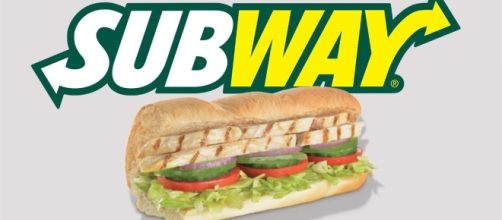Subway is facing controversy - again - after a report from Canadian CBC Marketplace indicated that Subway chicken is nearly more soy than chicken. Marketplace did a study of chicken from Subway, McDonald's, Wendy's, A&W, and Tim Hortons, to determine the total amount of actual chicken being used. Working with a group of researchers from Peterborough, Ontario's Trent University, they tested samples for chicken DNA, finding most samples to be around 84 to 90 percent Real. Subway's chicken, however, came out to 53.6%.
The researchers were so startled by their findings, they redid the tests an additional five times, confirming their initial findings.
But when contacted by Subway, Marketplace refused to divulge their study methods.
Subway isn't having it.
"Our chicken is 100% real chicken," said Subway in a statement on their website. "[CBC Marketplace] used factually incorrect data to suggest the chicken SUBWAY serves might not be all chicken. The claims made in the story are false and misleading."
Subway indicated that their chicken does contain some soy protein - the expectation was never that the samples would come out to 100% - but that it was contained in the seasonings and was minimal. "There is a small amount of soy protein in the seasoning, spices and marinade (less than 1%) to help maintain moisture and texture."
Subway might have a case.
When Subway first heard the allegations, they sent samples to independent labs in Canada and Florida to confirm the soy content.
When the results came back, they showed less than 1% of the chicken to be soy.
That's suspect in and of itself, of course, when 84 to 90 percent was the average set by other companies in the original study - but again, the study methodology, including how the chicken samples were obtained, is unknown; a sample that had, for example, been purchased in a sandwich could be considered fairly contaminated.
But Subway went further. They revealed their full ingredient lists for the chicken in question. They revealed their Canadian chicken supplier, Grand River Foods, along with their HACCP, BRC, and daily CFIA certifications. Subway also indicated that all of their own foods are regularly CFIA-inspected, and that's not chicken feed; Canadian food standards are much stricter than their American counterparts.
Critics remain unconvinced.
Regardless of what the truth is, Subway's reputation may be irreparably damaged; they always seem to be at the center of a controversy, whether it's the length of their sandwiches or their spokesman's pedophilia and many are now outraged at the allegations of chicken shenanigans. That's not likely to stop the $1.5 billion company or their 45,000 stores worldwide, but it's not likely to help, either.
"Producing high-quality food for our customers is our highest priority," says Subway. But incidents like this continue to damage their credibility.

